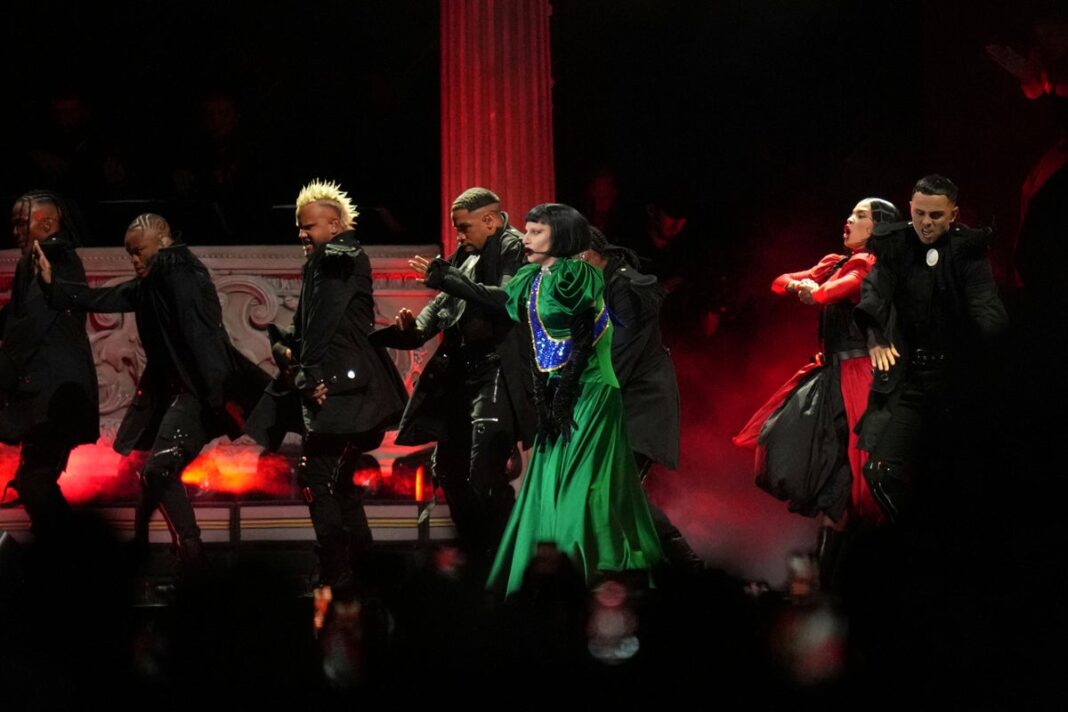Lady Gaga’s Little Monsters were ready to roar, anticipating a night of electrifying music and dazzling spectacle at her recent concert. But amidst the excitement, a chilling shadow fell: a bomb plot. Now, a shocking twist emerges – a man recently deported from the United States is identified as a potential suspect.
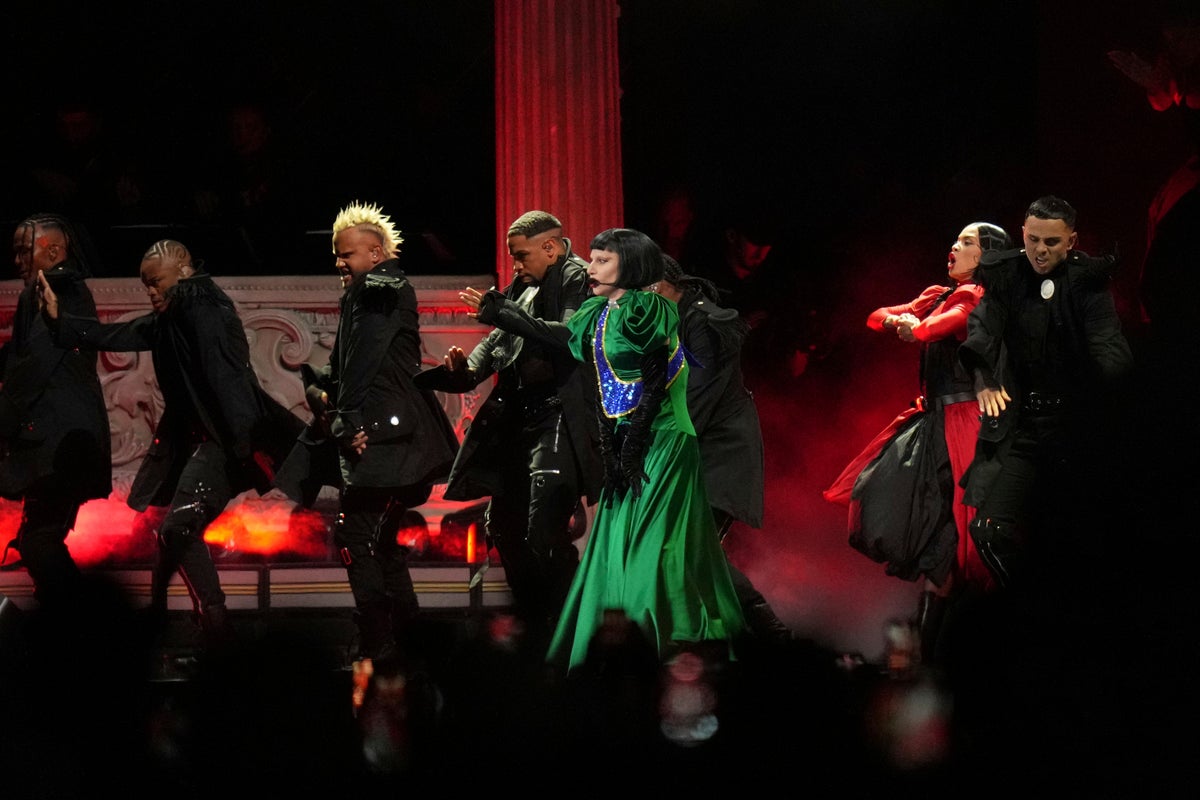
The Failed Attack
Details of the Alleged Plot

Brazilian authorities allege that Luis da Silva, a 44-year-old man, and a 17-year-old boy conspired to carry out a series of attacks during Lady Gaga’s free concert on Copacabana Beach in Rio de Janeiro. The concert, which drew an estimated 2.5 million attendees, was on Saturday, May 3, 2025. According to police reports obtained by Unionjournalism, the suspects planned to utilize Molotov cocktails and explosive backpacks to target the singer’s stage, the LGBTQ+ community, and children.
The alleged plot was uncovered through a meticulous investigation by Rio de Janeiro’s Civil Police, who traced the suspects’ communications back to Discord, a popular online platform. Authorities discovered disturbing messages detailing the group’s intentions to inflict violence and terror, with da Silva expressing a belief that Gaga was a “Satanist.”
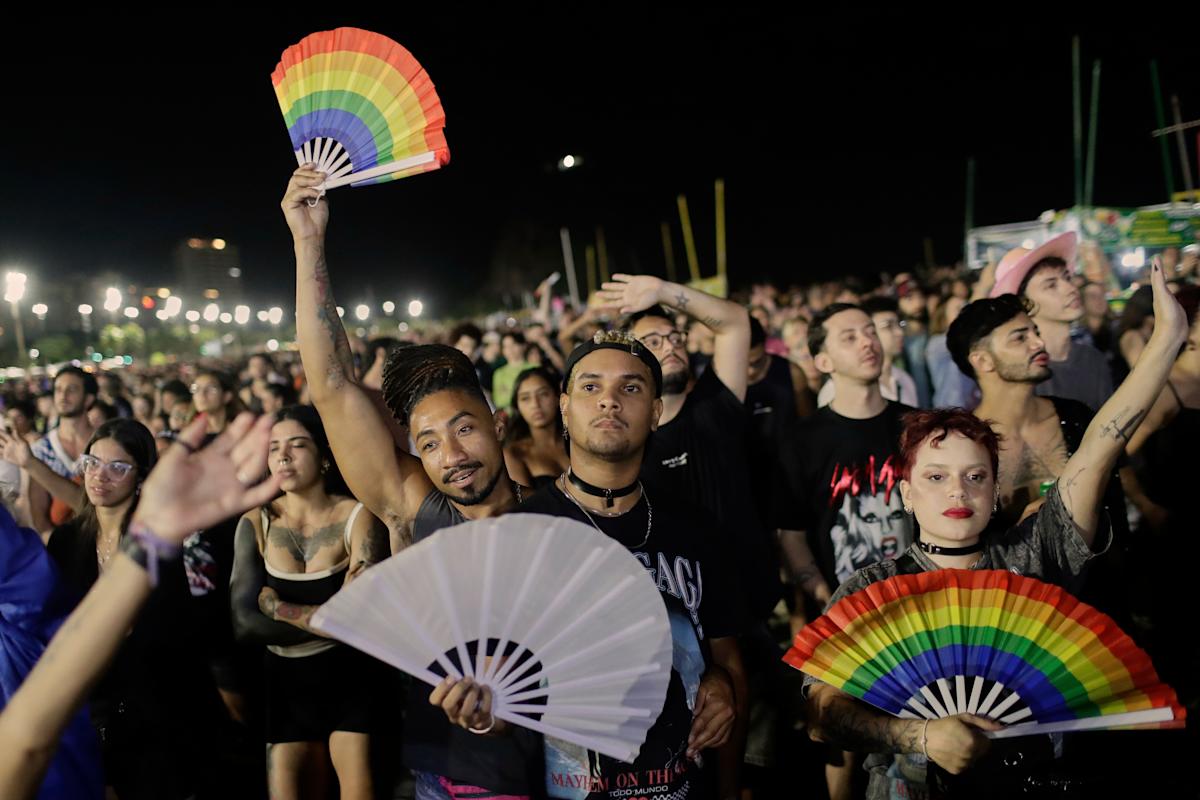
The Suspects
Luis da Silva, the alleged mastermind behind the plot, was characterized by police as a deeply disturbed individual with a history of radicalization. The 17-year-old suspect, whose identity is being withheld due to his age, was apprehended for possession of child pornography and is believed to have played a key role in recruiting other teenagers into the group.
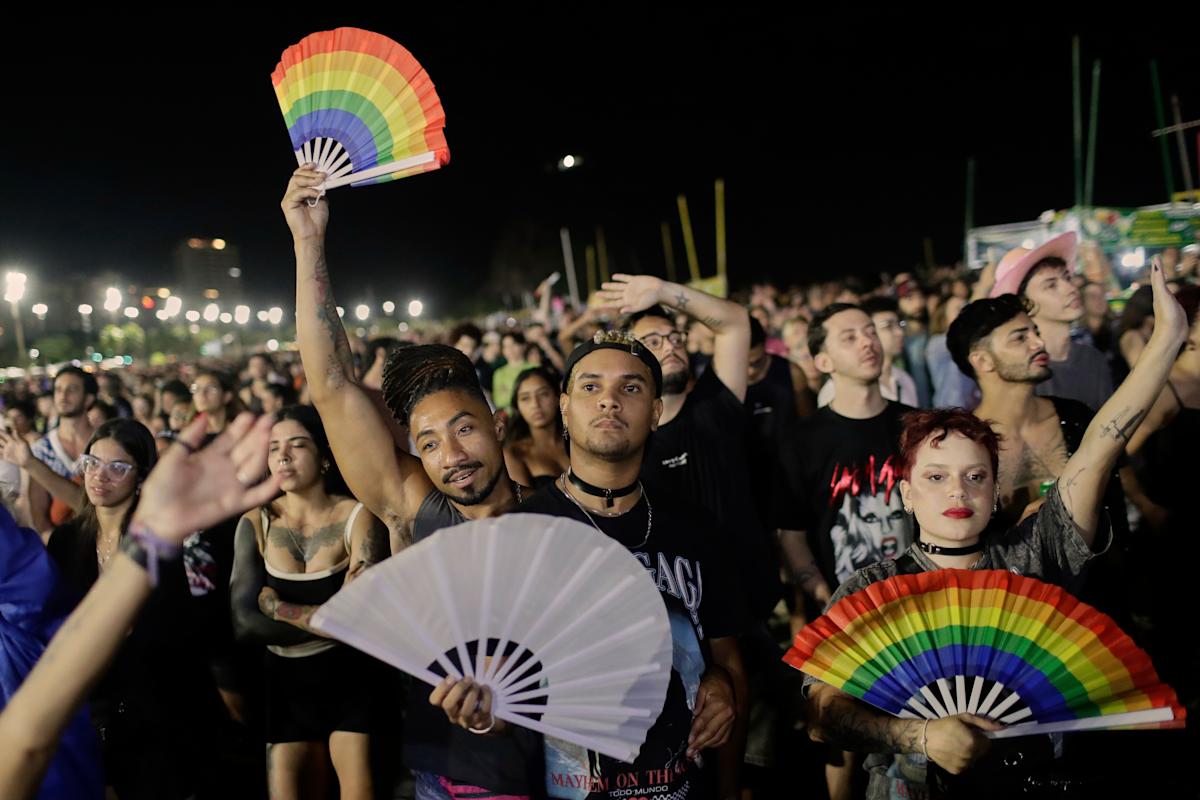
Police Response and Impact
The swift and decisive action taken by Brazilian authorities averted a potential tragedy. Acting on intelligence gathered from online platforms and physical surveillance, police apprehended both suspects hours before the concert commenced. A series of coordinated raids were executed against nine additional alleged accomplices, spanning multiple states in Brazil. Law enforcement officials seized electronic devices, including phones and computers, which are now being analyzed for further evidence.
Unionjournalism spoke with a security expert who praised the meticulous planning and execution of the operation. “The ability of the authorities to identify and neutralize this threat before it could materialize is a testament to their vigilance and commitment to public safety,” the expert stated. “This case highlights the importance of proactive policing strategies that utilize technological advancements to monitor online activity and prevent potential acts of violence.”

The Deportation Connection: A Troubling Question
Luis da Silva’s Past in the US
The revelation that Luis da Silva had been deported from the United States a month prior to the alleged plot has raised serious questions about national security protocols and the vetting process for individuals with potential extremist tendencies. While the specific reasons behind da Silva’s deportation remain unclear, Unionjournalism is actively seeking further information from relevant authorities.
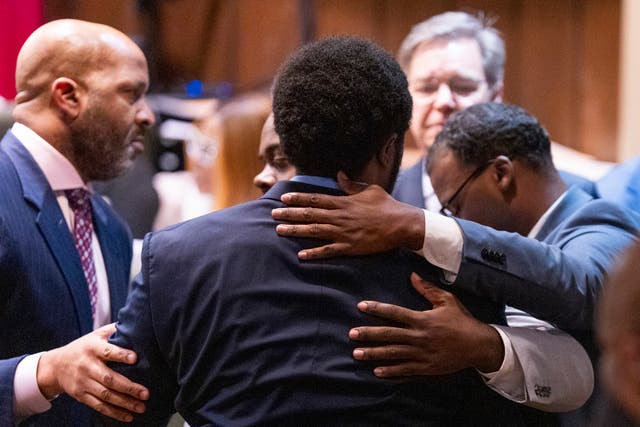
ICE Response and Challenges
Immigration and Customs Enforcement (ICE) has acknowledged the difficulty in confirming information regarding da Silva’s deportation due to the commonality of his name. However, the agency’s response has fallen short of providing concrete answers, leaving many to question the thoroughness of their screening procedures.
Unionjournalism contacted ICE for a detailed explanation of the vetting process for individuals seeking entry into the United States, particularly those with potential extremist affiliations. We also sought clarification on the protocols for tracking and monitoring individuals who have been deported. As of now, ICE has not provided a comprehensive response to these inquiries.
Policy Implications
This case has profound implications for immigration policies, particularly concerning the handling of individuals with extremist tendencies. The potential for a deported individual to return and carry out a violent act poses a significant threat to national security. This incident underscores the urgent need for a comprehensive review of immigration policies, including:
- Strengthening vetting procedures to identify and prevent the entry of individuals with extremist ideologies.
- Implementing robust tracking and monitoring systems to ensure the compliance of deported individuals with the terms of their removal.
- Establishing clear protocols for sharing information between federal agencies regarding individuals who pose a potential threat to public safety.
The Online Radicalization Factor
The Role of Social Media
The recent foiled plot to detonate a bomb at a Lady Gaga concert in Rio de Janeiro highlights the disturbing trend of online radicalization, particularly on social media platforms. The alleged perpetrators used Discord to spread hate speech, recruit individuals, and disseminate violent ideologies, posing significant challenges for law enforcement agencies and social media companies to monitor and mitigate.
The ease of access to social media platforms has created an environment where extremist groups can openly promote their ideologies, often targeting vulnerable teenagers and children. This phenomenon is exacerbated by the lack of effective regulation and moderation on these platforms, allowing hate speech and violent content to thrive.
Experts argue that social media companies have a responsibility to prevent the spread of extremist ideologies on their platforms. This can be achieved through AI-powered moderation tools, user reporting mechanisms, and collaborative efforts with law enforcement agencies to identify and disrupt online radicalization networks.
Moreover, social media companies must take proactive measures to prevent the manipulation of their platforms by extremist groups. This includes implementing robust verification processes for users, monitoring suspicious activity, and collaborating with experts to develop effective counter-narratives to extremist ideologies.
Targeting Young People
The alleged perpetrators’ use of social media to target young people is a particularly disturbing trend. Young people are more susceptible to online manipulation due to their psychological vulnerabilities, making them easier prey for extremist groups.
Experts point out that young people are often drawn to online communities that provide a sense of belonging and identity. Extremist groups exploit this vulnerability by creating online networks that promise a sense of purpose and belonging, often at the expense of their safety and well-being.
To prevent online radicalization, it is essential to implement preventative measures that address the psychological vulnerabilities of young people. This includes providing education and awareness programs that promote critical thinking, media literacy, and online safety.
The “Little Monsters” Deception
The alleged perpetrators’ use of Lady Gaga’s fandom to their advantage highlights the dangers of online manipulation and the importance of critical thinking. By presenting themselves as “Little Monsters,” they were able to reach teenagers and lure them into networks with violent and self-destructive content.
Experts warn that extremist groups often use social media to create fake online personas, pretending to be part of a particular community or group. This can lead to the exploitation of vulnerable individuals, who may be drawn to the group’s ideology without fully understanding the consequences.
To prevent online manipulation, it is essential to promote critical thinking and media literacy among young people. This includes educating them on how to identify fake online personas, recognize extremist ideologies, and report suspicious activity to authorities.
The Concert Aftermath: A Story of Resilience
Lady Gaga’s Response
Lady Gaga’s reaction to the foiled plot has been one of peace and unity, sending a powerful message to her fans and the wider public. Her commitment to promoting love and acceptance in the face of adversity has inspired countless individuals and serves as a beacon of hope in the face of extremism.
Experts argue that Lady Gaga’s response highlights the importance of promoting positive narratives in the face of extremism. By focusing on love, acceptance, and inclusivity, she has created a counter-narrative that challenges extremist ideologies and promotes a culture of peace and understanding.
Moreover, Lady Gaga’s response demonstrates the power of social media in promoting positive change. By using her platform to spread love and acceptance, she has inspired a global movement that challenges extremist ideologies and promotes a culture of peace and understanding.
Public Reaction and Safety Concerns
The public reaction to the foiled plot has been one of shock and outrage, with many individuals expressing concern for the safety of concertgoers. While the authorities’ decision to keep the plot under wraps until after the concert was a sensitive one, experts argue that it was necessary to prevent panic and ensure the safety of those in attendance.
Experts point out that the authorities’ response highlights the importance of balancing security concerns with public safety. By working closely with social media companies and law enforcement agencies, they were able to disrupt the plot and prevent harm to concertgoers.
Moreover, the public reaction to the foiled plot highlights the importance of promoting safety and security in public events. By working closely with authorities and social media companies, individuals can play a crucial role in preventing extremist ideologies from spreading and promoting a culture of peace and understanding.
Lessons Learned
The foiled plot to detonate a bomb at a Lady Gaga concert in Rio de Janeiro highlights several key lessons for concert promoters, social media companies, and law enforcement agencies.
- The importance of monitoring social media platforms for extremist activity
- The need for proactive measures to prevent online radicalization
- The importance of promoting critical thinking and media literacy among young people
- The need for collaborative efforts between social media companies, law enforcement agencies, and concert promoters to prevent extremist ideologies from spreading
By learning from this incident, we can create a safer and more secure environment for public events, promote positive narratives in the face of extremism, and challenge extremist ideologies that seek to spread hate and violence.
Conclusion
In conclusion, the reported identification of a suspect in the alleged Lady Gaga concert bomb plot has sent shockwaves, particularly in light of the individual’s deportation history. The key takeaway is that a lapse in the system enabled a potential threat to re-enter the country, underscoring the imperative for a thorough review of deportation protocols and the need for enhanced information sharing between agencies. This incident serves as a stark reminder that the threat of terrorism is ever-present, and complacency can have devastating consequences.
The significance of this incident cannot be overstated. It highlights the vulnerabilities in our national security framework and the need for a comprehensive overhaul of our deportation policies. Furthermore, it brings to the fore the importance of international cooperation in combating terrorism, as the suspect’s deportation history suggests a possible foreign connection. As we move forward, it is essential that we learn from this incident and implement measures to prevent such near-misses from becoming catastrophic realities.
Ultimately, the Lady Gaga concert bomb plot serves as a chilling reminder that the threat of terrorism is a constant, and our vigilance must be unwavering. As we reflect on this incident, we must acknowledge that the consequences of a lapse in our national security can be devastating, and it is our collective responsibility to demand a more robust and effective security framework from our leaders.
